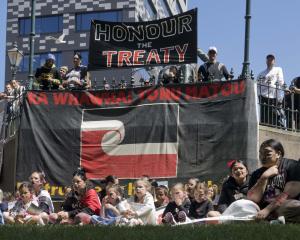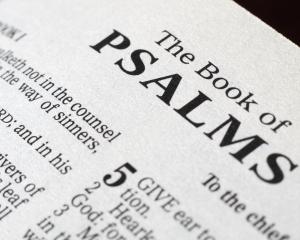
The has been astonishment at the estimated 80% of white evangelicals, women as well as men, who voted for Donald Trump. People have been scratching their heads. No wonder!
Generally, in this country and elsewhere, evangelicals have, after all, been known for their high standards of integrity and personal morality. Our own Otago settlement owed much to their dynamism and community spirit. Think of the English Evangelicals and the Aborigines’ Protection Society comes to mind, the campaign of Wilberforce and others against the slave trade, not to mention the humane energy that flowed through Methodism into countless social justice causes. In our own country, Prof Ian Breward was a prominent advocate for abolishing state discrimination against the gay community. In recent times, too, you could find evangelicals at the forefront of the peace movement, and championing environmental issues, outraged at child poverty.
I myself am not an evangelical, but have been constantly reminded by friends such as Ian Breward and my close colleague in Edinburgh, Prof David Wright, of their unwavering intellectual rigour. Evangelical Protestants are known, of course, for their emphasis on personal faith, and on the biblical foundations of faith, but as Bebbington has reminded us, they also drew on the heritage of the European Enlightenment. They argued their case rationally, empirically, reasonably, historically. We tend to forget, too, that it was largely evangelical scholars who patiently and courageously opened up the Bible to historical and critical methodology in the nineteenth century.
But then one comes across Mr Trump’s very different brand of evangelicals.
Christian freedom appears to mean to them the right to discriminate against gay people in employment. They champion "creationism" against evolution. They proudly tote guns. Their model for society is a patriarchal and ethnocentric one. Commentators have therefore spoken of a "whitelash" against Barack Obama and all he stands for. The racial and feminist dimension.
Last week BBC radio, in its Heart and Soul programme, hosted a discussion between four US evangelicals, evenly split between pro and anti-Trump, analysing his appeal to voters. The lively but inclusive discussion ended with a reflection about what the founder of Christianity, the Man of Nazareth, would have said about the Trump phenomenon. An impossible question, of course, but like all impossible questions a fascinating one.
Indeed, when one thinks of Jesus’ subversion of rule-book morality and of biblical literalism, of his praise of Samaritans, his rejection of weapons and violence, his closeness to and affirmation of women, one wonders what on earth he would have had in common with those who lined up behind a candidate who denigrated Mexicans, mocked global warming and articulated a gross misogyny. These so-called evangelicals would surely have hated the historical Jesus, with his allusive and confusing parables, open-ended questions, and liking for dodgy company. How ironic that they arrogate to themselves today the right to trumpet his evangel, his "Gospel", as theirs!
They have certainly given the proud evangelical movement a bad name. Hypocritical defence of Trump’s "locker-room" talk has been dressed up as a manifestation of sanctifying grace. "Whitelash" fired up by biblical trash! One is not without sympathy for the evangelicals’ foot-soldiers, ordinary folk disoriented in a changing world. But their leaders, preachers and TV evangelists will have a lot to answer for, religiously, culturally, as well as politically, especially as the grim consequences of this election begin to unravel.
- Peter Matheson is a Dunedin historian.












